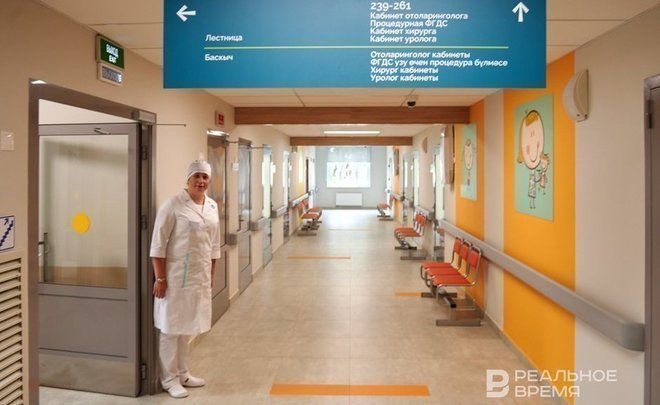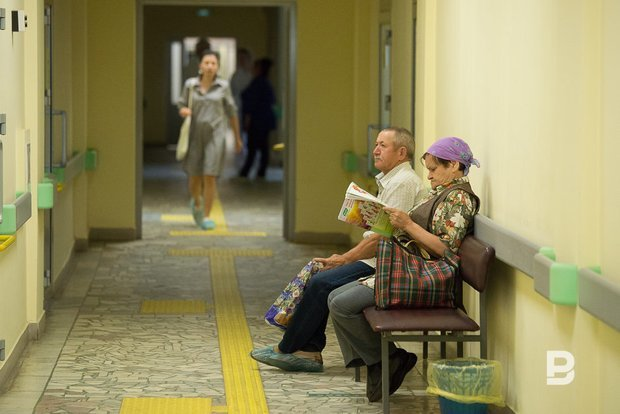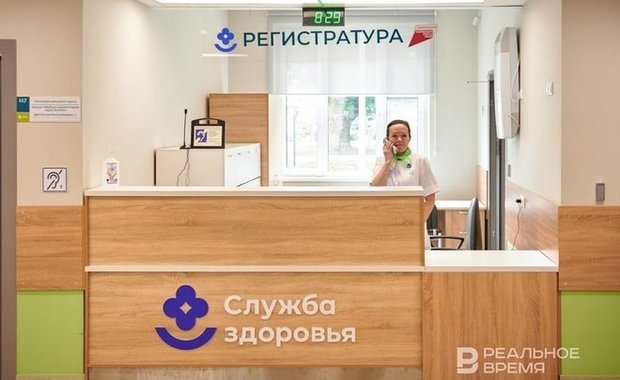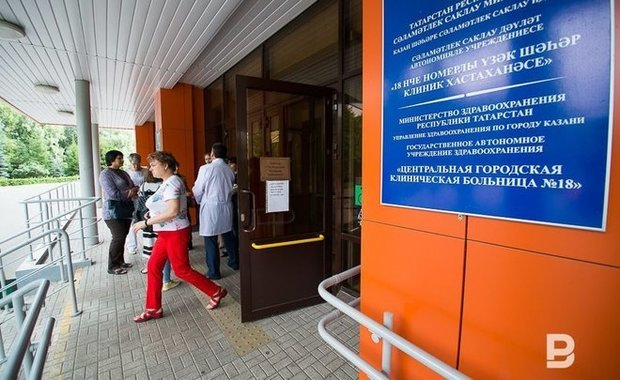Emergency health care at one’s own expense: impatient patients with insurance offered to legally pay for medical services
Health workers will be tempted to earn on patients with insurance while patients will have additional guarantees of quality medical advice, experts say

New rules of providing fee-based medical services will come into force from 1 September 2023, and these changes are revolutionary — now private medical advice is permitted in the system of mandatory medical insurance, however, with numerous caveats. Read about the upcoming changes and their consequences for patients according to specialists and experts in Realnoe Vremya’s report.
Ambulance will arrive faster if you pay
The Programme of State Guarantees of Free Medical Advice to Russian Citizens, which is annually approved by the country’s government, determines the types, conditions and order of free medical advice. Russian regions adopt a local programme of state guarantees (Programme of State Guarantees further on) on its basis. It spells out the types and amounts of medical service for different diseases funded by mandatory medical insurance. And the new rules of private medical services coming into force from 1 September this year don’t envisage the amount of free advice will reduce. However, these rules permit institutions providing medical advice within mandatory medical insurance to offer private medical services on patients’ request.
“Now there is a possibility of providing private medical advice in emergency cases,” said head of the PR and Press Department of the Local Mandatory Medical Insurance Fund of the Republic of Tatarstan Lyudmila Doronina. “For instance, if a patient with an acute toothache turns to a dentist’s with his mandatory medical insurance, the patient must be attended within two hours. If the patient isn’t ready to wait, now he or she can be offered medical advice right away but after paying. Earlier, there was a ban on emergency medical advice.”

Doronina said that the patients who are treated at hospitals “for free,” that’s to say, with mandatory medical insurance, can be provided the possibility of being treated with medicines that aren’t on the list of vital medicines after paying and stressed:
“If such a service is on the list of a health care institution’s price list. However, if the situation is life-threatening or the patient isn’t tolerant to a medicine that’s on the list of vital medicines, the medicines that aren’t on the list of vital medicines cannot be provided commercially. The following order is implied in such cases: a medical organisation’s commission of doctors makes a decision on their prescription, the organisation purchases this medicine.”
Special meals and individual nurse’s station for money
A diet-based therapy is another new fee-based service that now can be provided at “free” clinics — but this doesn’t mean patients can be provided some special meals for money.
“We are talking about specialised products, for instance, formulas used in different diseases, for instance, malnutrition,” specified Lyudmila Doronina. “Also, an individual stations can be installed for money, but only if it is not installed due to prescription but on the patient or his or her relatives’ request.”

She noted that such a station is good because a health care worker will monitor the patient’s state, not a caregiver, it is likely to be a nurse who will professionally take care for the patient.
She added that patients can be provided medical products that aren’t purchased with public money and mandatory medical insurance. Another novelty of the new rules is the possibility of signing an agreement on private medical services remotely.
“Get consulted before signing an agreement!”
“An important norm will come into force from 1 September too: like when providing free medical advice, private medical advice must be provided in accordance with existing rules of providing medical advice on the basis of clinical recommendations and standards,” said Lyudmila Doronina. “This fully complies with requirements of the federal law On Basics of Citizens’ Health Protection. Both free and private medical advice must rest on one principles.”

At the end of the conversation about the new order of providing medical advice for money, she warned patients:
“One should take the effort to call the insurance company and consult it before signing an agreement of fee-based medical services. You will find the number of the insurance company on the back side of your medical insurance. Call it and find out all the nuances of free medical advice you are entitled to with mandatory medical insurance. And perhaps, it will turn out that there is no need in signing an agreement on private medical services and you can receive necessary examinations and treatment free.”
Who will control this?
Doronina noted that the new rules don’t determine who control their execution:
“In the old rules, the consumer rights protection watchdog was responsible for this. In the mandatory medical insurance system, medical insurance organisations perform these functions. Insurance representatives do this work. If you think the quality of medical advice provided was low, you should write to a medical insurance organisation for inspection. It can also help make an appointment if there are issues with receiving an appointment for diagnostics or the waiting period for medical advice is too long. The medical insurance organisation should be called first. If this didn’t help, you should turn to a contact centre of the Local Mandatory Medical Insurance Fund of the Republic of Tatarstan.”

Lyudmila Doronina reminded us that the mandatory medical insurance system includes the use of financial sanctions against medical organisations for improper or low-quality medical advice, or not providing it, this is why there is no doubt that a patient’s legal claims will be considered after insurers’ interference.
“No time for provocations”
However, it is actively rumoured on the Internet today that the new rules of private medical services are threatening with limiting patients’ access to “free” medicine and imposition of additional fee-based examinations and medicines by health workers/

At the same time, he is convinced that it is more reasonable for patients to try to receive treatment within state guarantees — with mandatory medical insurance:
“When it has to do with money, there is always a risk of surcharge. And I think it is wrong to combine public and private services. I am in favour of an approach when a person shouldn’t count money in their pocket on the way to hospital, moreover, it doesn’t matter if this person is rich or not. If there such a division of patients at a public hospital, it is inequality, moreover, the one that excites both sides. The imposition of fee-based services in public health care institutions was once a forced measure, then it started to be refused. And today, when public institutions assume responsibility for more and more examinations, private clinics cannot compete with them in terms of both qualification and capabilities. Yes, private clinics are ahead from a perspective of speed, but the speed isn’t always important. People around the world calmly wait for their turn.”
“Why not?”
Director General of Kazan Urban Hospital No. 12 Ramil Akhmetov thinks that the new rules of fee-based medical services don’t have any “bomb” for those who receive treatment with mandatory medical insurance. Simply because doctors often don’t need to offer medical services for money:

However, in some cases the possibility of offering them can come in handy:
“For instance, if a patient is in the hospital with arthritis and at the same time wants to treat a degenerative spine disease and asks us for a neurologist’s consultation, additional therapy, massage sessions that aren’t envisaged for his or her disease, why not offer such services for money?”
But Ramil Akhmetov thinks that patients receiving treatment within mandatory medical insurance anyway will turn to fee-based medical services:
“Considering that the share of fee-based services in public health care institutions of Tatarstan is less than 10%, we can say for sure that these services won’t make much difference. This provides little payments and nurses, and it is a stimulus for them. For patients, an agreement for fee-based services is a guarantee of quality of these services. Though I think it is easier and more logical to completely divide free and fee-based patients.”